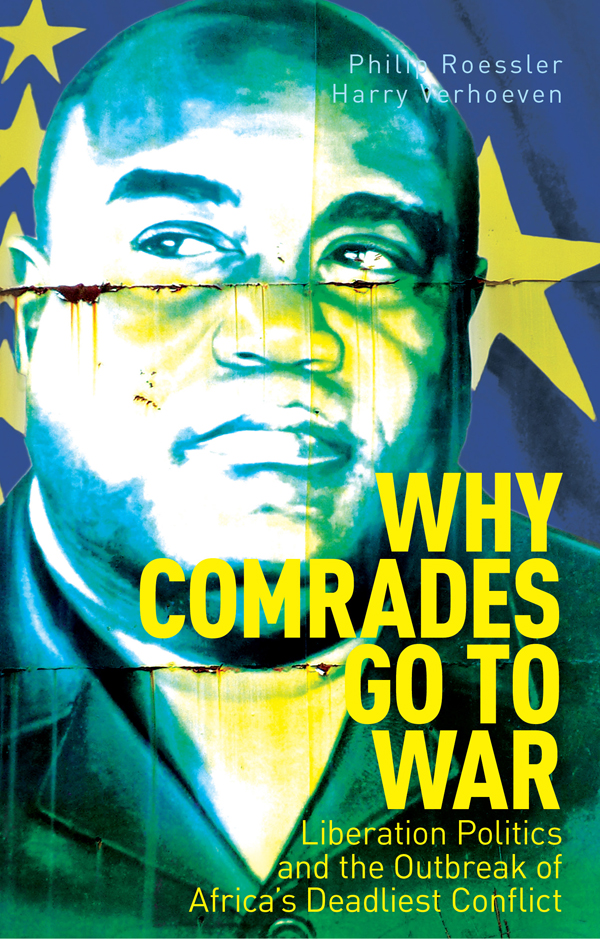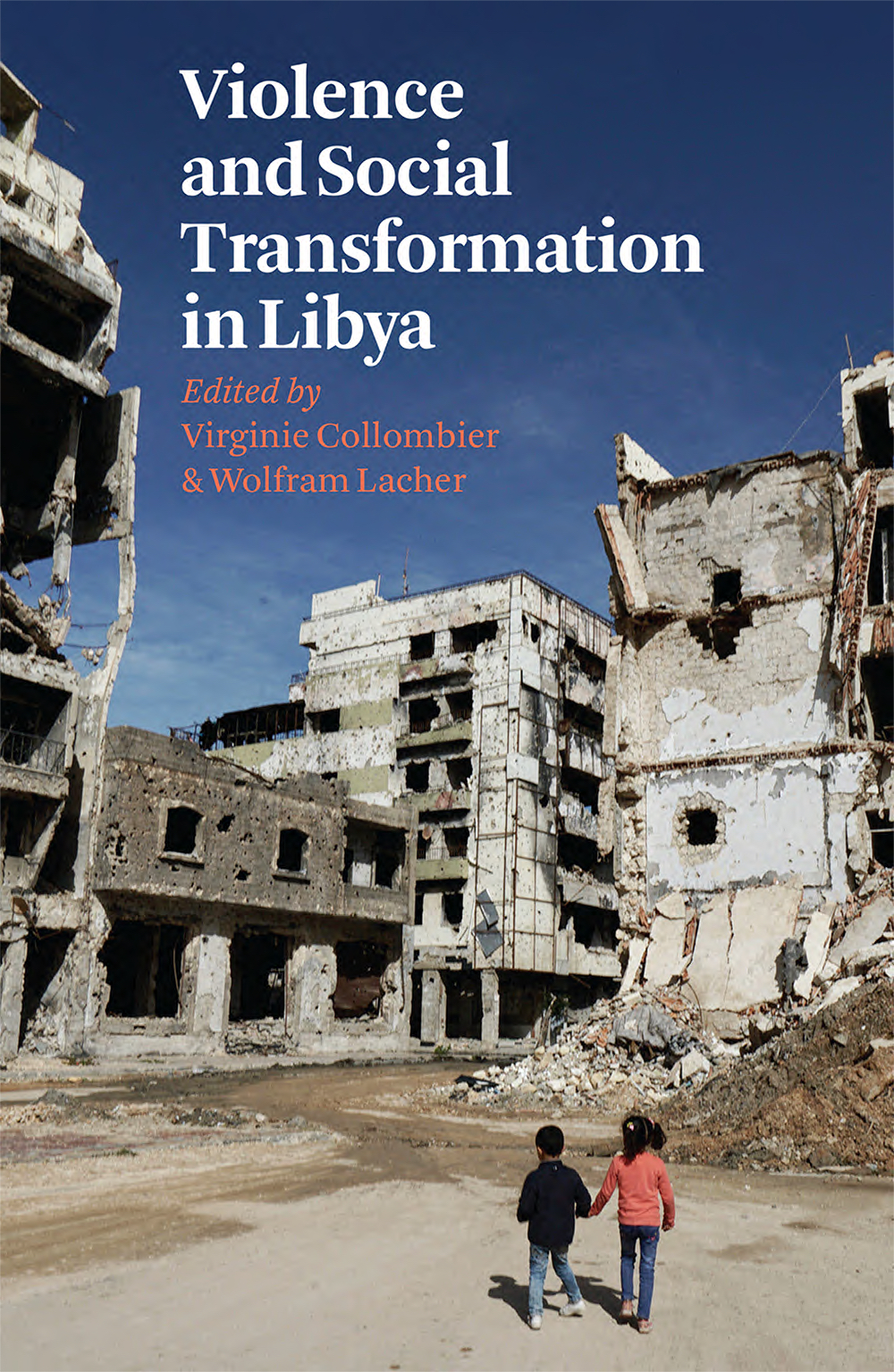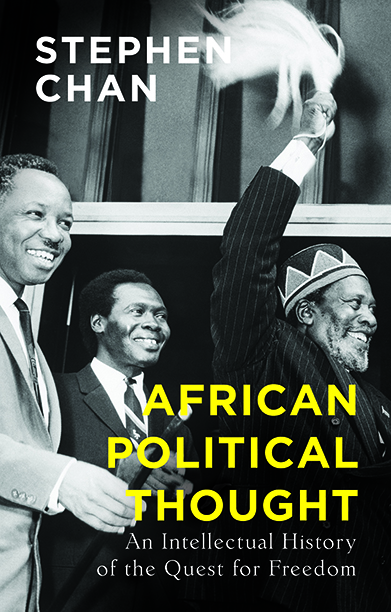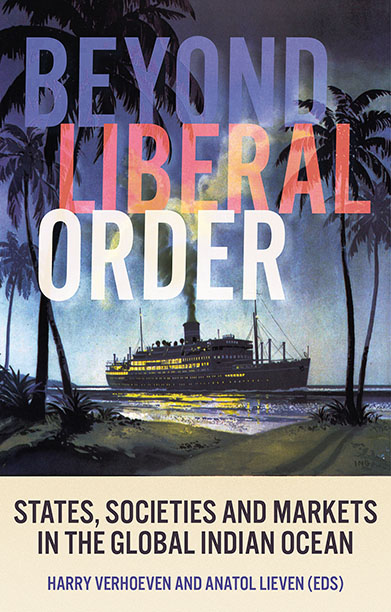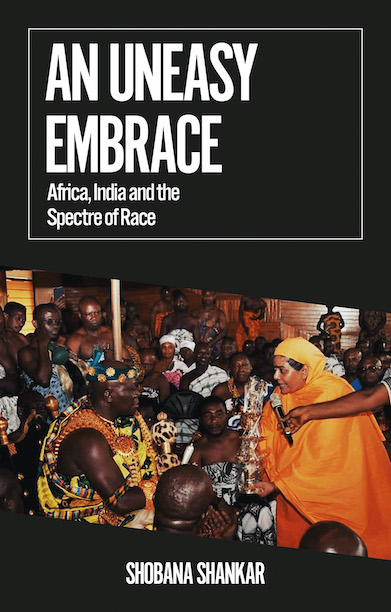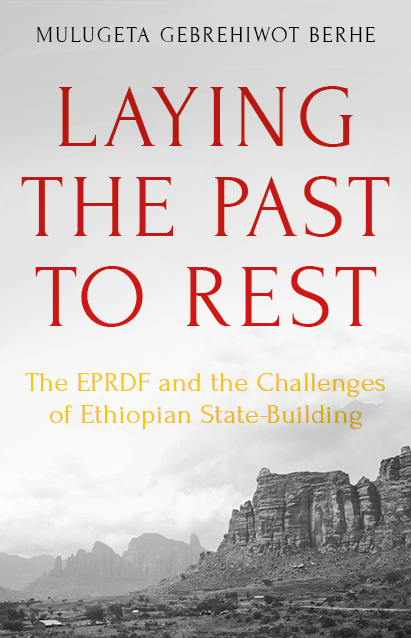Why Comrades Go to War
Liberation Politics and the Outbreak of Africa’s Deadliest Conflict
A critical examination of how, only fifteen months after overthrowing Congo’s long-serving dictator, Mobutu Sese Seko, the revolutionaries and their regional allies turn on each other, triggering the deadliest conflict since World War II.
Description
In October 1996, a motley crew of ageing Marxists and unemployed youth coalesced to revolt against Mobutu Seso Seko, president of Zaire/Congo since 1965. Backed by a Rwanda-led regional coalition that drew support from Asmara to Luanda, the rebels of the AFDL marched over 1500 kilometres in seven months to crush the dictatorship. To the Congolese rebels and their Pan-Africanist allies, the vanquishing of the Mobutu regime represented nothing short of a ‘second independence’ for Congo and Central Africa as a whole and the dawning of a new regional order of peace and security.
Within fifteen months, however, Central Africa’s ‘liberation peace’ would collapse, triggering a cataclysmic fratricide between the heroes of the war against Mobutu and igniting the deadliest conflict since World War II. Uniquely drawing on hundreds of interviews with protagonists from Congo, Rwanda, Angola, Uganda, Tanzania, Ethiopia, Eritrea, South Africa, Belgium, France, the UK and the US, Why Comrades Go To War offers a novel theoretical and empirical account of Africa’s Great War. It argues that the seeds of Africa’s Great War were sown in the revolutionary struggle against Mobutu—the way the revolution came together, the way it was organized, and, paradoxically, the very way it succeeded. In particular, the book argues that the overthrow of Mobutu proved a Pyrrhic victory because the protagonists ignored the philosophy of Julius Nyerere, the father of Africa’s liberation movements: they put the gun before the unglamorous but essential task of building the domestic and regional political institutions and organizational structures necessary to consolidate peace after revolution.
Table of contents
CHAPTER 1. INTRODUCTION
THE EXPULSION ORDER
AFRICA’S FRATRICIDAL WAR
THE ARGUMENT
APPROACH
CONTRIBUTIONS
PLAN OF THE BOOK
PART I: THE ARGUMENT
CHAPTER 2. LIBERATION, COUNTER-REVOLUTION AND WAR IN POST INDEPENDENCE AFRICA
INTRODUCTION
THE LIBERATION STRUGGLE IN AFRICAN HISTORY
CONTINUITY AND CHANGE: FROM LIBERATION TO NEO-LIBERATION MOVEMENTS
LIBERATION: A CONCEPTUAL FRAMEWORK
A THEORY OF LIBERATION AND INTERNATIONALIZED CIVIL WAR IN POST-INDEPENDENCE
AFRICA
CONCLUSION: THE END OF REGIONAL POLARIZATION, PEACE AND THE PUZZLE OF AFRICA’S
DEADLIEST CONFLICT
CHAPTER 3. A VICTIM OF ITS OWN SUCCESS: THE LIBERATION OF ZAIRE AND THE
OUTBREAK OF AFRICA’S GREAT WAR
INTRODUCTION
EXISTING EXPLANATIONS
OUR ARGUMENT: LIBERATION POLITICS AS A TWO-LEVEL GAME
PART II: THE WAR TO END ALL WARS
CHAPTER 4. THE GATHERING STORM: MOBUTU’S ZAIRE, THE AFRICAN LIBERATION PROJECT AND THE RWANDAN PATRIOTIC FRONT
INTRODUCTION
THE STATE OF CONGO: MOBUTU AND “NEO-COLONIAL AFRICA”
THE PAN-AFRICANIST LIBERATION PROJECT: TANZANIA, UGANDA AND BEYOND
THE BANYARWANDA QUESTION AND THE RISE TO POWER OF THE RWANDAN PATRIOTIC FRONT
POST-GENOCIDE RWANDA
THE REFUGEE CAMPS IN ZAIRE
CONCLUSION
CHAPTER 5. COMRADES PREPARING FOR WAR: THE ALLIANCE TO OVERTHROW MOBUTU
INTRODUCTION
THE RPF’S DILEMMA, LAURENT DESIRÉ KABILA AND THE ROAD TO WAR
THE MZEE AND THE RPF: THE GENESIS OF A PARTNERSHIP
THE PAN-AFRICANISTS COME ON BOARD: THE ROLE OF ERITREA, ETHIOPIA, TANZANIA AND UGANDA
CONCLUSION: THE ALLIANCE DÉMOCRATIQUE POUR LA LIBÉRATION DU CONGO-ZAIRE AND THE LEMERA AGREEMENT
CHAPTER 6. THE CAMPAIGN: THE SPRINT TO KINSHASA AND THE RWANDAN-ANGOLAN COLD WAR
INTRODUCTION
ZERO HOUR: THE INVASION OF ZAIRE AND THE ‘LIBERATION’ OF THE REFUGEE CAMPS
POINT OF NO RETURN: THE FINAL PREPARATIONS
DISMANTLING THE CAMPS
ANGOLA ENTERS THE RING: THE PAN-AFRICANIST ALLIANCE EXPANDS
THE MARCH TO KINSHASA: DIVERGING PRIORITIES AND EMERGING FAULT-LINES
DEATH IN THE RAINFOREST
THE RISE OF THE “FAMILLE KATANGAISE”: THE AFDL’S CHANGING COMPOSITION
THE RWANDAN-ANGOLAN COLD WAR: TSHIKAPA AND THE FIRST CONFRONTATION BETWEEN THE COMRADES
PART III: FROM TRIUMPH TO TRAGEDY: THE PATH TO AFRICA’S GREAT WAR
CHAPTER 7. THE POST-MOBUTU ORDER AND POLITICS IN KINSHASA AFTER LIBERATION.
INTRODUCTION
BUILDING POST-MOBUTU CONGO: ELITE ACCOMMODATION AND ORDER CREATION
FROM LIBERATION MOVEMENT TO SOVEREIGN GOVERNMENT: KABILA’S BALANCING ACT
GOING IT ALONE: THE MZEE CONSOLIDATES POWER
CONCLUSION
INTERLUDE: A RWANDAN FOLKTALE
CHAPTER 8. THE UNRAVELLING: INTERNAL AND EXTERNAL STRAINS ON THE ALLIANCE
INTRODUCTION
THE CONSTRAINTS OF STRATEGIC INTERDEPENDENCE
KILLING THE GOLDEN GOOSE
KATANGISATION AND THE CREATION OF A PARALLEL ARMY
THE VOLCANO RUMBLES: NEW AND OLD GRIEVANCES IN EASTERN CONGO
CONCLUSION
CHAPTER 9. BACK AGAINST THE WALL: THE RETURN OF THE GÉNOCIDAIRE THREAT
INTRODUCTION
THE EX-FAR/INTERAHAMWE REGROUP, NOVEMBER 1996-MAY 1997
FIGHTING THE ABACENGEZI: THE INSURGENCY AND COUNTER-INSURGENCY
CONGO, KABILA AND THE GENOCIDAIRES
CONCLUSION: THE NORTHWEST INSURGENCY AND THE ROAD TO A SECOND CONGO WAR
CHAPTER 10. MZEE’S PRE-EMPTIVE STRIKE: THE KINSHASA ENDGAME
INTRODUCTION
OUR MAN IN HAVANA: MZEE GOES TO CUBA
THE EXPULSION ORDER
THE CONSPIRACY: FROM “PLAN A” TO “PLAN B”
SECOND AUGUST 1998: THE REBELLION-CUM-INVASION OF CONGO
CONCLUSION: FROM ALLIANCE BREAKDOWN TO EXPULSION ORDER AND VIOLENT CONFLICT
CHAPTER 11. COMRADES GO TO WAR: TRIANGULAR DIPLOMACY BETWEEN KINSHASA, KIGALI AND LUANDA
INTRODUCTION
FROM THE KITONA BLITZKRIEG TO ANGOLAN INTERVENTION
THE SHADOW OF THE ANGOLAN CIVIL WAR
TRIANGULAR DIPLOMACY
CONCLUSION: “IN TOTAL WAR YOU WILL EVEN SLEEP WITH THE DEVIL”
CHAPTER 12. WHY COMRADES GO TO WAR
THE MZEE IS DEAD
WHY COMRADES WENT TO WAR
THE END OF THE PAN-AFRICANIST LIBERATION PROJECT: A REQUIEM
APPENDIX: METHODOLOGICAL NOTE
ON THE ELITE INTERVIEWS OF WHY COMRADES GO TO WAR
NON-EXHAUSTIVE LIST OF ELITE INTERVIEWS
REFERENCES
Reviews
‘[Roessler and Verhoeven’s] purpose is to answer the question: “Why did comrades go to war?” and to view the conflict through the prism of “liberation politics”. The merit of their book is that it includes interviews with many of the protagonists, clarifying critical details about their involvement … The depth of the authors’ research is impressive.’ — Times Literary Supplement
‘A novel lens through which to understand the First Congo War . . . sure to provoke renewed discussion.’ — International Affairs
‘Vivid and compelling . . . a precious contribution to our understanding of the most complex and deadliest African conflict of the late 20th century.’ — Africa at LSE Blog
‘Probably the best book on the dynamics that drew so many to the Congo conflict and the crisis that refused to release its grip on the country.’ — The EastAfrican
‘This is a rare combination: a book that combines exceptional academic rigor with deep, personal knowledge of a place and its main actors. As important for political scientists as it is for historians and congophiles.’ — Jason Stearns, Director, Congo Research Group, New York University and author of Dancing in the Glory of Monsters: The Collapse of the Congo and the Great War of Africa
‘One of the most intelligent books on conflict in Africa that I have read in a long time. Based on an astoundingly comprehensive array of interviews with the key actors in this war.’ — William Reno, Professor of African Studies at Northwestern University, and author of Warfare in Independent Africa
‘An exceptionally well researched and argued book. Based on a wealth of hitherto unknown information, including many interviews with crucial stakeholders, it offers new and refreshing insights into very complex and dramatic events that continue to impact Central Africa up to the present day.’ — Filip Reyntjens, Professor of Law and Politics at the University of Antwerp, and author of Political Governance in Post-Genocide Rwanda and The Great African War: Congo and Regional Geopolitics, 1996-2006
‘Why Comrades Go To War is a detailed and compelling account of the bitter grapes of post-colonialism in Africa. The authors range widely over Central Africa but provide a detailed account of the often sordid and always tragic events that ruined the lives of millions of people. I find an almost Greek tragedy — an inevitability — in the events they relate, but the authors wisely temper this impression by showing how the leaders’ choices, fears, ambitions, greed, and mistakes made the tragedy modern. An important book.’ — William Polk, author of Violent Politics and Neighbors and Strangers, among many other books
‘Why Comrades Go to War is a welcome addition to the literature on the Congo Wars, first to overthrow Mobutu and then to overthrow his successor, Laurent-Désiré Kabila. Roessler and Verhoeven demonstrate that a focus on elite actors (above all, Kabila and his Rwandan Tutsi backers, Generals Kagame and Kabarebe) is essential to understanding why the first war led inexorably to the second.’ — Tom Turner, author of The Congo Wars: Conflict, Myth and Reality
‘Africa’s most deadly war was rooted not only in geopolitics, but in an ideological state conspiracy as well. This puzzling story is told in Why Comrades Go to War, a cross between a political people’s magazine and a late twentieth-century overview of eastern and central Africa. A must for those wanting to track the labyrinths underpinning visible African events.’ — Gérard Prunier, author of The Rwanda Crisis: History of a Genocide and From Genocide to Continental War
Author(s)
Philip Roessler is an assistant professor in the Department of Government at the College of William and Mary, where he is also Director of the Center for African Development. He is the author of Ethnic Politics and State Power in Africa: The Logic of the Coup-Civil War Trap (2016).
Harry Verhoeven is a Senior Research Scholar at the Center on Global Energy Policy, School of International and Public Affairs at Columbia University. He is the Convenor of the Oxford University China-Africa Network and a Senior Adviser at the European Institute of Peace. He is the author of Water, Civilisation and Power in Sudan, Why Comrades Go To War and editor of Environmental Politics in the Middle East.
